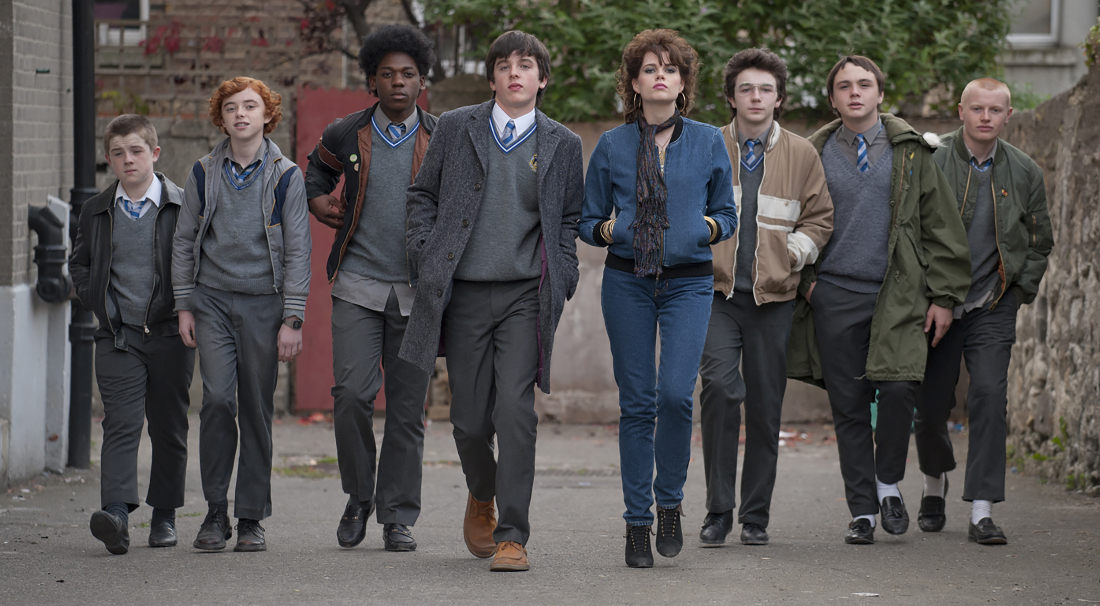“We need to form a band.”
John Carney, known most for 2007’s indie hit Once, has a knack for crafting timeless poetic character studios, set to the backdrop of music. Sing Street, his latest project, continues his legacy, building off his latest work as it showcases a young adolescent who decides to form a rock band in an effort to win over the girl of his dreams.
Set in Dublin, 1985, Sing Street works diligently to set the time, place and mood of its story. Centered around a fragile family, torn at the seams due to the harsh economic times, the film puts our protagonist Cosmo in a tough spot. Forced to attend a new school, away from his friends and social comfort zone, he finds solace in the girl across the street. In an attempt to strike up a conversation and peak her interest, he offers her a role in a music video for a song that he and his bandmates wrote. The only issue…there is no song. There isn’t even a band.
Known for his music Carney is unapologetic as he revolutionizes the eighties with solid, quick tempo beats. And while none are polished enough to warrant airplay, Carney is able to channel the up and coming, crafting lyrics that represent a band working to define their sound and message.
Expanding outside of the music Carny creates a set of characters that are both entertaining and authentic. While newcomer Ferdia Walsh-Peelo (as Cosmo) will steal your heart it is his brother Brendan (played flawlessly by Jack Reynor) that gives the story its grit and comedic relief. It is his catchy dialogue and matter-of-fact delivery that allows the heartbreaking story to bear a soft and free flowing tone.
Taken from Carney’s personal experience while growing up, Sing Street is deeper than what originally meets the eyes. While the story is centered around a young boy who is working tirelessly to discover himself, the outer circle encompasses much more as audiences are introduced to a time when Ireland suffered immense economic struggles, when many were forced to leave the country for London in search of work. The depression serves as a constant backdrop to the coming-of-age story, showing the power that music can have as one begins to grow and understand themselves. The subtle clues to the family troubles and the symbolic escape that music represents is beyond the scope of normal storytelling, shining light on the power that music can have to adversity and the importance is plays to Cosmo’s development.
The film flows at an even, authentic pace, accumulating to the third act when the band gets the opportunity to play at the high school prom. It is at this moment that we learn there are two sides to every story, a cause to every effect, and a time and place for every action. And while the film does get lost between the real and the imaginative, the final scene is everything you hoped for from the moment you laid eyes on Raphina.

